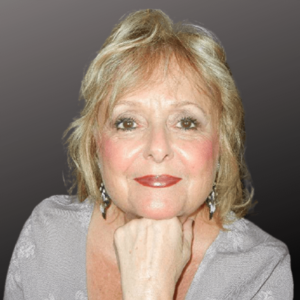My last post explained how I became an author. I had the inspiration, the enthusiasm, the passion to write; imagination and story-telling my forte. I’m reasonably well-educated so I figured I didn’t have far to go to master the finite skills to get published, right? Well, no.
One of my first lessons came from my son’s girlfriend, a recent graduate of Boston University, whom I talked into reading a few chapters for me. After the initial enthusiasm from my niece and my sister I was overly confident and subsequently rather shocked when she said: “Didn’t anyone ever tell you about show don’t tell?”
Well, duh, I had heard that somewhere but never actually thought about it. Okay, I know what you’re thinking, and you’re right. I’d been through six years of college, two masters degrees, but I never took a creative writing class. So no, I had no idea I was doing way too much telling. I set to work to correct that giant flaw. The flood gates opened. I searched the internet and found tons of help online. How to write dialogue, how to overuse and underuse dialogue tags. The value of an opening sentence, how to avoid tropes other than the ones demanded by the genre you are writing. I didn’t even know what a trope was back then.
I made lists. I filled notebooks. I wrote and rewrote.
And then I
- Joined a writing group. Reading my work in front of total strangers gave me a serious case of nerves, but eventually I began to trust. We were all there for the same reason. To improve, to learn from each other and I can honestly say that some of my best new friends are those in my writing groups.
- Went to a writing conference. I attended a writers conference out of state. They can be a bit pricey, but the camaraderie and intensity of writing and sharing late into the night and over coffee early in the morning was an experience I’ll never forget.
- Hired a professional editor. Again, pricey, but it was well worth it and cheaper than earning an MFA. Check out legitimate ones online at Preditors and Editors. Pick several with good ratings and ask for a price quote. They’ll ask for a few sample pages and will forward a proposal defining what level of editing they provide and a price for their services. Feel free to bargain, price is negotiable, especially if you quote a competitor.
- Learned the value of agent rejection. If you’re lucky and an agent requests your manuscript only to eventually reject it, take the opportunity to ask for feedback. Two wonderful agents gave me valuable insight into ways to improve.
- Scoured the internet and found more things. There are too many to list here, just put in what you’re looking for, like: dialogue tags, phrases for imagery, famous opening sentences, metaphors… The list is endless. One of my favorites is a grammar check website (Online Text Correction) that is free. You paste in a paragraph and it identifies tons of problems from overuse of words, to clichés, to weak verbs and overuse of adjectives.
- Checked out books on writing from the library, bought some. My favorites are: THE ART OF FICTION, Gardner, John (Random House), ELEMENTS OF FILM, Bobker, Lee R. (Harcourt Brace Jovanovich), SELF–EDITING FOR FICTION WRITERS, Browne/King, (Harper).
- Dissected my favorite books. I studied how to write dialogue and body language, inner monologue, and setting, as well as opening scenes from some of the best-selling authors I admire. The first time I did this I discovered you don’t put quotation marks at the end of a paragraph of dialogue if the speaker continues in the next paragraph. Something I’d never consciously noted before.
- Stole stuff. At first I couldn’t believe credible authors would say such a thing, and I had serious doubts. Of course, this is a famous quote from Picasso. And I get it, it’s not plagiarism it’s inspiration. Other’s words can give voice to your own. Now, I can’t stop myself. Thanks to the DVR I can “steal” from TV shows and movies. In one of my books the wedding scene between my lead characters is inspired by the exchange of vows between two scientists that I heard on an episode of NUMBERS. Thanks to my eReader, I highlight phrases and words or expressions I like, then go back and write them in my phrase notebook.
- Read blogs and Writer Websites. I belong to a few online communities: Writing World, Goodreads, Writer Unboxed, Writer’s Digest, Publishers Marketplace, Simon and Schuster, She Writes, Bookbaby blog, Mother.Write, to name a few. I also follow several agent and author websites. You can pick up all kinds of tips, from writing your novel, to writing a query, to writing life.
There’s no doubt I approached this daunting task with the mind of a scientist. It’s the way I do everything. Something intrigues me and I set my sights on discovering everything I can about it. I develop the skills, I do and redo, I ask others, I read, I make giant mistakes and feel dejected, then pick myself up and do it again. I’ve done this with embroidery (it was big in the 70s and I had the most magnificent embroidered hems on my jeans), I learned how to macramé and worked myself up to a 4’x6’ wall-hanging, I crocheted baby blankets for all my friends, I learned to sculpt, I made silver jewelry which required learning how to solder metal with a blow torch.
Only one thing worried me.
One day, many years ago, I mentioned to my astrology teacher that I had a terrible personality flaw. I get excited about something, I learn it, I master it and then… I walk away and never do it again. (I used to be an astrologer, another skill I eventually abandoned.) She laughed at me, “You’re an Aquarian. That’s what you do. The thrill is in charting the unknown, learning a new skill. But once you’ve mastered it to your satisfaction then you’re done. You get bored and you move on to the next adventure.” Hmm. I wasn’t sure how I felt about that. I’m still not. And hopefully, I’ll never master the art of writing. I wonder if it’s something that can ever be mastered. I think if you asked the masters, they’d agree. I’ve heard authors lament that even after a book is published there are always parts they’d like to rewrite.
Up Next: Surviving feedback.




